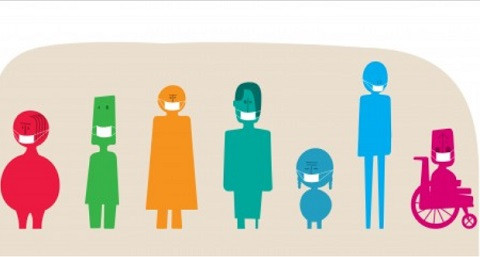
GCED Basic Search Form
Quick Search
Вы здесь
Events

As local governments recover from the impacts of COVID-19 that brought them to the front lines, the need to plan for the post-crisis era requires policy strategies that aim to construct tomorrow’s smart cities where the quality of life, health and well-being of citizens are guaranteed. As incubators for innovation and sustainability, smart cities have risen to the pandemic’s challenges by utilizing data hubs, as well as digital and online tools, in order to optimize the efficiency of public services and to cater to the needs of their populations. But the COVID-19 pandemic has also demonstrated that governance which centered on inclusivity, fostering a whole-of-community approach that ensures “no one is left behind”, proves to be a crucial component for resilience and recovery. Policy responses are thus called to confront societal challenges and include the protection of vulnerable urban populations and the collaboration with a wide range of stakeholders. Data and information should include various demographics, such as gender analysis, age- and sex-disaggregated data, as well as socioeconomic factors, which are part and parcel of a strong COVID-19 response. Smart cities should also invest in socially inclusive infrastructures where community engagement is scaled up. Finding a balance between leveraging smart solutions and at the same time according access to these technologies to the most vulnerable is the hallmark of a smart and inclusive city.
Smart and inclusive cities
The UNESCO webinar series aims to exchange experiences and expertise on the measures to address the COVID-19 crisis at the global and local levels. The focus will be on the social dimensions of “leaving no one behind” and on actions taken to fight against the growing incidents of racism, discrimination and exclusion.
The webinar targets national/local policymakers and stakeholders, international and regional organizations, academics, students and NGOs. Speakers will include global experts and city authorities from UNESCO’s International Coalition of Inclusive and Sustainable Cities – ICCAR. This webinar series focuses on thematic areas that shed light on the visceral forms of discrimination that exist in our societies. It seeks to unlock a deeper understanding of a number of critical issues underlying the pandemic in order to act in the present and anticipate the future.
As local governments recover from the impacts of COVID-19 that brought them to the front lines, the need to plan for the post-crisis era requires policy strategies that aim to construct tomorrow’s smart cities where the quality of life, health and well-being of citizens are guaranteed. As incubators for innovation and sustainability, smart cities have risen to the pandemic’s challenges by utilizing data hubs, as well as digital and online tools, in order to optimize the efficiency of public services and to cater to the needs of their populations. But the COVID-19 pandemic has also demonstrated that governance which centered on inclusivity, fostering a whole-of-community approach that ensures “no one is left behind”, proves to be a crucial component for resilience and recovery. Policy responses are thus called to confront societal challenges and include the protection of vulnerable urban populations and the collaboration with a wide range of stakeholders. Data and information should include various demographics, such as gender analysis, age- and sex-disaggregated data, as well as socioeconomic factors, which are part and parcel of a strong COVID-19 response. Smart cities should also invest in socially inclusive infrastructures where community engagement is scaled up. Finding a balance between leveraging smart solutions and at the same time according access to these technologies to the most vulnerable is the hallmark of a smart and inclusive city.
Speakers
· Magda Popeanu, Vice-chair of the Executive Committee, Responsible for Culture, City of Montréal, Canada
· Juan Sebastián González, Deputy Secretary of Information Technologies, Medellin, Colombia
· Seleta Reynolds, Head of the Department of Transportation, Los Angeles, USA
· Vivian Shaw, Head researcher of the AAPI COVID-19 Project, Harvard University
Moderator
· Alex Thibault, Vice President and General Manager, Vulog
Password: 288624
Register in advance here to save the webinar in your calendar.
Email: SHS.inclusion-rights@unesco.org
URL:
